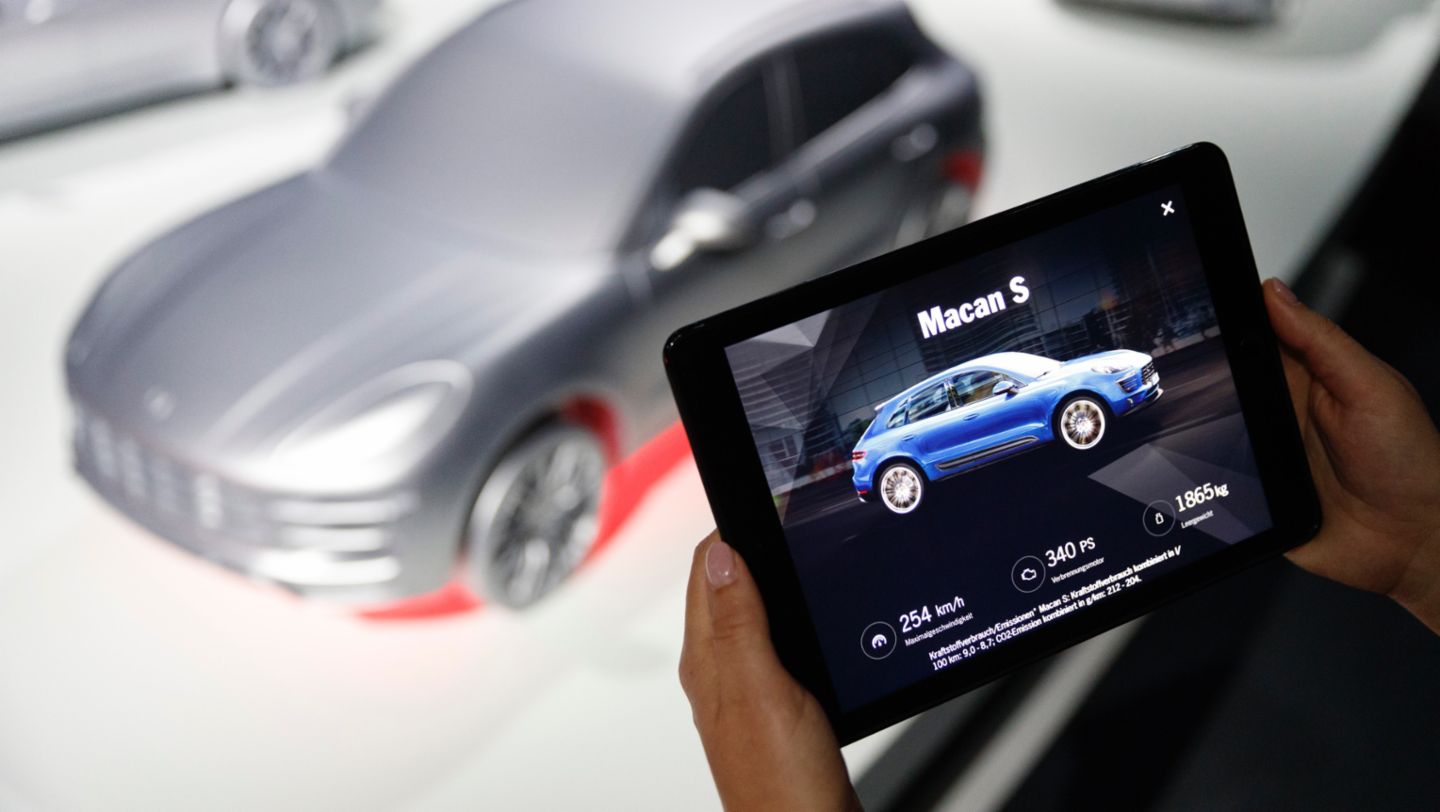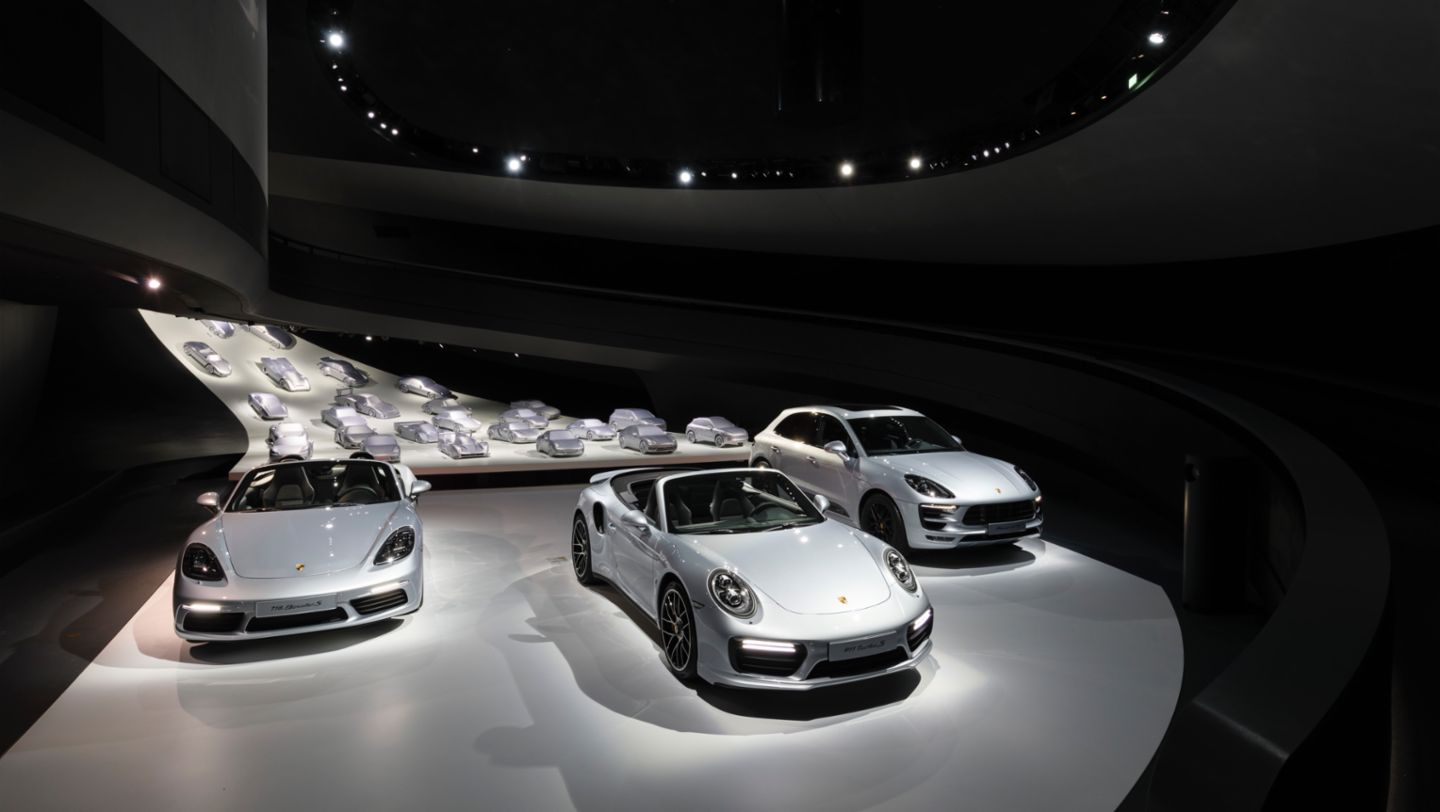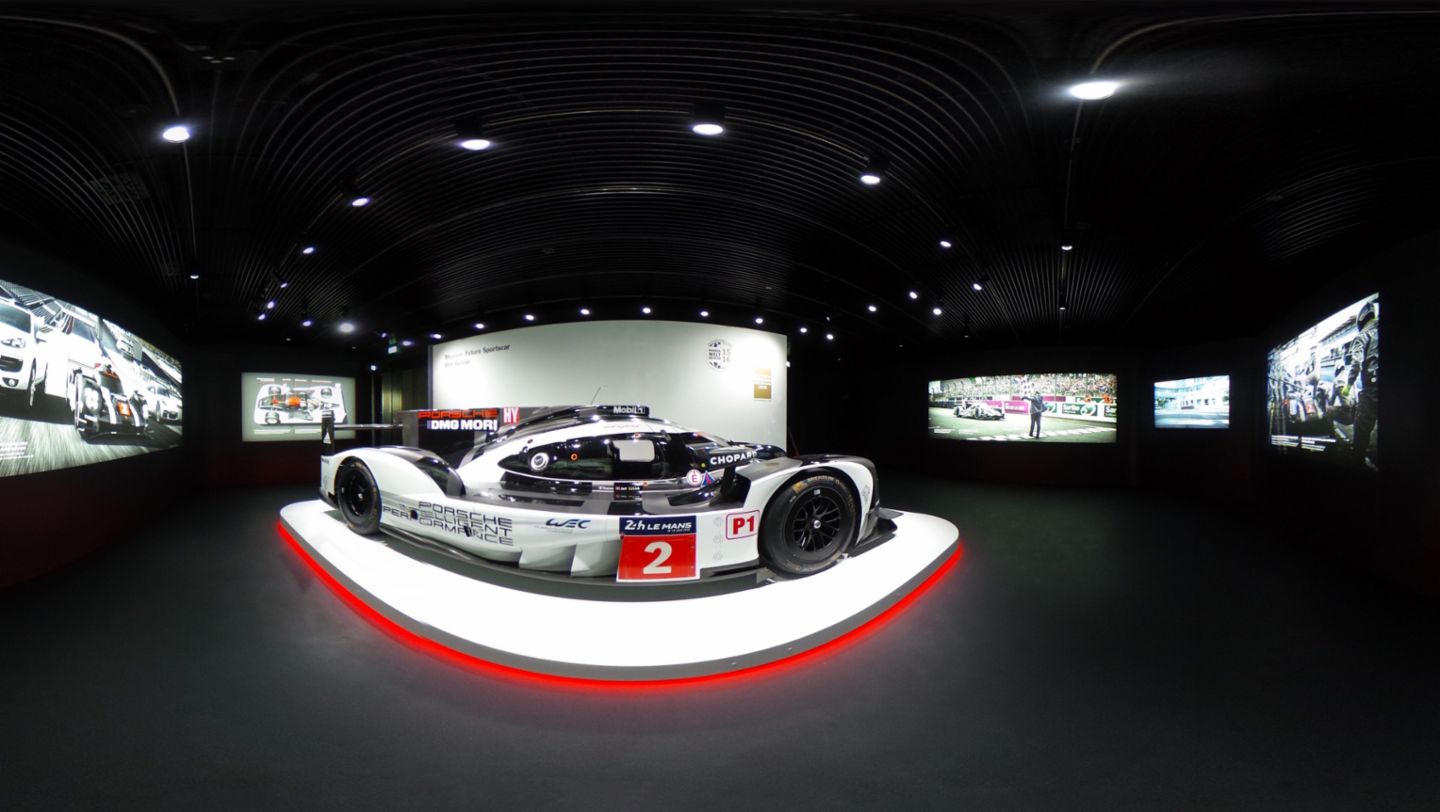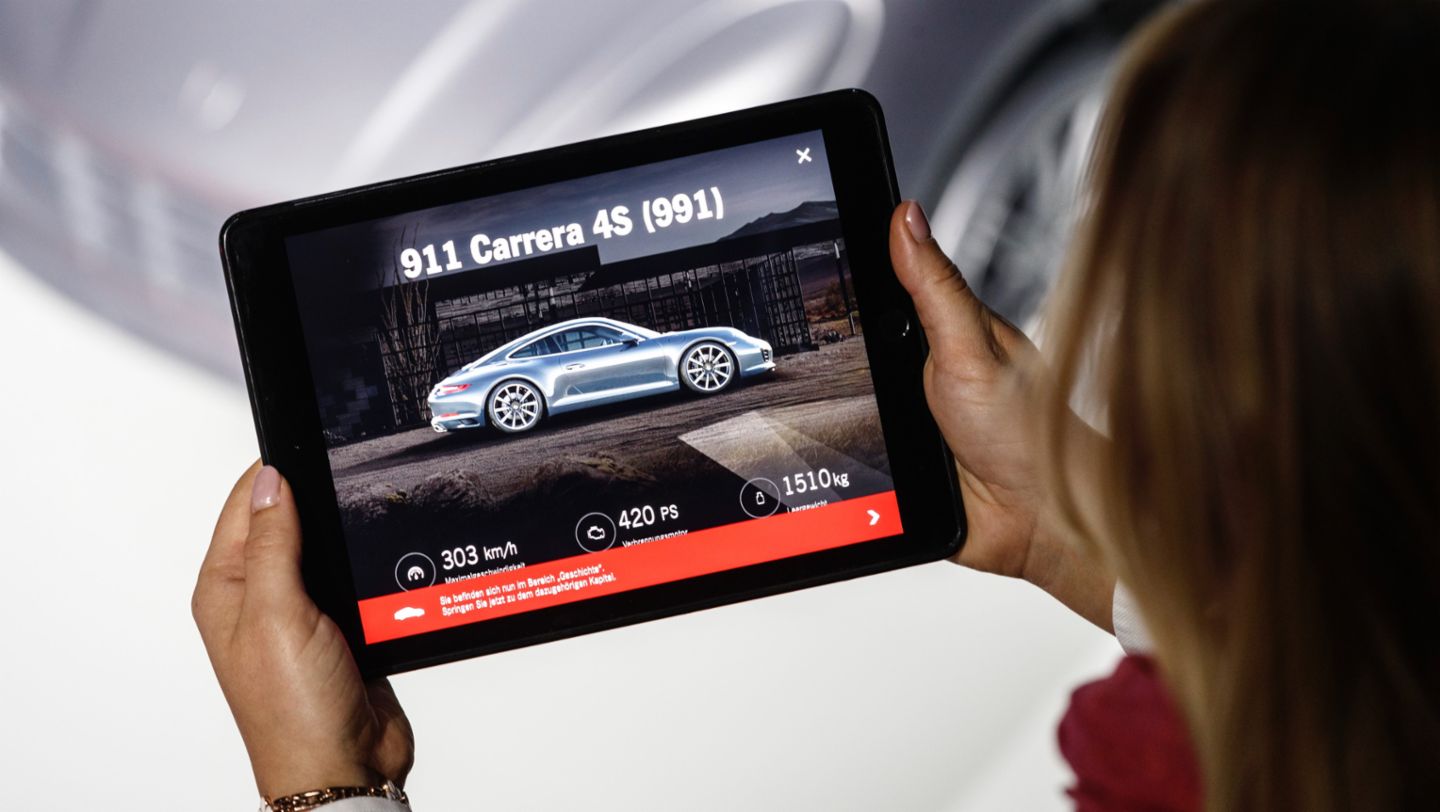The new area is to be inaugurated with the special presentation entitled “Mission Future Sportscar”, at which visitors will be able to see the 919 Hybrid, the winning vehicle from the 24 Hours of Le Mans in 2016. In addition, the 28 1:3 scale miniature vehicles that take visitors on a journey through the product history of the sportscar manufacturer have been rearranged: The journey through time begins with the Porsche 356 from 1948. In addition to the 718 RS 60 Spyder, the current generations of the 911, 718 Boxster, 718 Cayman and Panamera have been added.
“Another new feature is that visitors are guided through the exhibition using an iPad”, explains Robert Ader, Director Marketing Communications of Porsche AG. For example, the tablet is used to present detailed information about the twelve milestones in the history of the Porsche brand, which visitors pass as they enter the pavilion. The miniature vehicles, arranged in a cluster, can also be controlled via the iPad. “The interactive expansion of our exhibition means that we can not only create an individual visit for each generation, but also make it more varied and more appealing”, adds Ader. A new film about the brand also forms part of the redesign in the Porsche pavilion, providing further insights into the values and philosophy of the sportscar brand. At the end of the tour, visitors can take a photo of themselves in a Porsche and have their personal souvenir photo sent to them by email.
“The location of the Porsche pavilion between the Volkswagen pavilion and the Customer Centre impressively symbolises the close ties and common history within the Group. I am thrilled that this visitor magnet is receiving its first expansion today with a new changing exhibition, making the sporting genes of the brand even more tangible for our guests”, says Otto F. Wachs, Managing Director of the Autostadt. The Porsche pavilion at the Autostadt in Wolfsburg was opened in 2012 and won the Automotive Brand Award 2012 design prize in the “Best of Best – Architecture” category in the same year. The pavilion sports a curved and gleaming matt roof design, inspired by the silhouette of a Porsche. The unusual design symbolises the common roots that have united Porsche and Volkswagen from the very beginning.
“For Porsche, the pavilion is a central structure at the headquarters of the Volkswagen Group and thus represents the fascination for our brand, as well as the affinity with the Group”, explains Achim Stejskal, Director of the Porsche Museum in Stuttgart. “With the re-design, we hope to be able to give visitors new insights into our company.” The Porsche pavilion is one of a total of eight pavilions that visitors can enjoy at the Autostadt in Wolfsburg. The “ZeitHaus” museum in Wolfsburg features cars from all different brands, including further models from Porsche’s history, which spans over 60 years.








